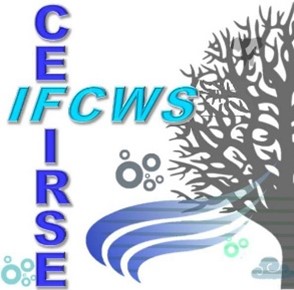





HOME
Coordination:
Sekhar MUDDU (IISc)
Jean RIOTTE (IRD)
Laurent RUIZ (INRAE)
Indo French Cell for Water Science
The IFCWS (CEFIRSE in French : Cellule Franco Indienne de Recherche en Science de l’Eau) is an international laboratory located on Indian Institute of Science campus in Bangalore, which studies water and environmental issues in India, from local to subcontinent scales. Several French institutions are involved in the IFCWS : the National Centre for the Scientific Research (CNRS), the Research Institute for the Development (IRD), the National Research Institute for Agriculture, Food and the Environment (INRAE) and Paul Sabatier University. At IISc, the IFCWS is affiliated to the Interdisciplinary Center for Water Research (ICWaR) and works along with several departments : the Civil Engineering Department, the Center for Earth Sciences, the Center for Ecological Sciences, the Center for Sustainable Technologies, the Center for Atmospheric and Oceanic Sciences and the Divecha Center for Climate Change.
IFCWS studies eco-agro-socio-hydrosystems in India, using an integrated approach articulating their characterization, functioning and evolution, based on long-term observations and modelling combining a wide range of disciplines, including hydrology, geochemistry, soil science, ecology, agronomy, remote sensing, geophysics, economy, sociology, geography. The Indian context is characterized by the highly dynamic response of socio-hydrosystems (both spontaneous adaptation of farmers and concerted actions by NGOs and governments) to the growing pressure on water resources under overexploitation and changing climate (dry spells and floods). Hence, it is particularly interesting to develop and test integrated approaches to account for strong and rapid feedbacks between biophysical and socio systems.
1- Understanding and modelling the main processes governing hydrosystems
Read More
This axis carries out research activities at small scale mostly (plot, farm, catchment) and rely primarily (but not only) on the Indian sites of the SNO M-Tropics.
We study water and bio-geochemical cycles (nutrients, Carbon, contaminants …) in pristine and anthropic systems. We aim at characterizing their different components (soils, aquifers, streams and reservoirs, vegetation …) and human interventions, primarily agriculture (crop choice, irrigation scheduling, fertilization, amendments, pesticides, agro-ecology…), but also others (e.g. mining, reuse). This axis involves intensive experimental setup (sampling campaigns, networks of sensors, extensive surveys) which we use to elaborate and test process-based models and to calibrate and evaluate satellite products (Cal/Val).
2- Knowledge integration at the scale of the sociohydrosystem
Read More
This axis carries out research activities at the territory scale mostly, with a primary site being the Berambadi watershed (SNO M-Tropics) complemented with others sites, in particular the Billikere watershed (NGO BAIF, Living Lab ClinsFood), and the REWARD network of micro-watersheds in Karnataka (Watershed Development Dept., World Bank project).
We develop approaches and models focusing on interactions and feedbacks between the biophysical and social systems. We consider water, nutrients, energy, labor, food and economic fluxes (extensive observations and survey, comparative agriculture, territorial metabolism). We use these data and the knowledge gained from axis 1 to build distributed models for budgeting these fluxes at the territory scale. We engage in participative approaches to exchange knowledge with local stakeholders, co-build and assess adaptation scenarios.
3- Upscaling, outreach and knowledge transfer
Read More
This axis comprises relatively newer research activities mostly carried out mostly at large scales (river basin, state, sub-continent). We engage in developing generic Decision Support Tools (models and products from satellite such as Gross Primary Production, EvapoTranspiration, Soil Moisture, Soil properties) for stakeholders (farmers, extensions services, NGOs, policy makers …). We also study Water Governance in India and document large-scale agroecological transitions (organic, Natural farming…) and the continuum continent-ocean-atmosphere (sediment and nutrient transport to the sea, coastal vulnerability to floods and erosion). For this, we build on the knowledge gained at finer scale in axis 1 and 2, to scale up to regional and sub-continental scale, involving system simplification (selecting main drivers and additional constrains such as lower resolution / secondary data).
- Indo-French Monsoon School on Hydrology from Space
 From 16th of October to 18th of October, 2023 For 3 days, the Indo-French Cell for Water Science was delighted to… Lire la suite : Indo-French Monsoon School on Hydrology from Space
From 16th of October to 18th of October, 2023 For 3 days, the Indo-French Cell for Water Science was delighted to… Lire la suite : Indo-French Monsoon School on Hydrology from Space





